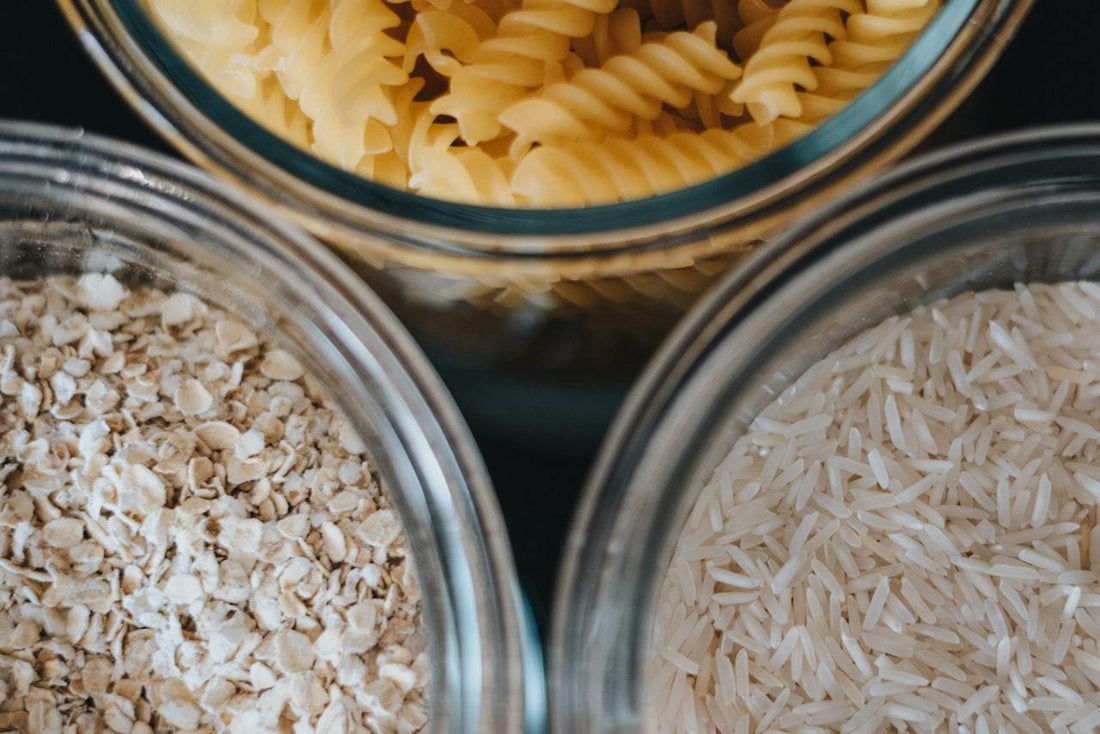Carbs Are Not The Devil

Why do carbs have such a bad wrap? After all, carbs themselves do NOT make you fat. OVER CONSUMPTION of carbs makes you fat. There are certainly better carbs than others, but too often, people focus too much on the small stuff. I want to focus on a couple things I feel are most important, and hopefully this will help you in your meal planning, and make progress a little easier.
The Glycemic Index
This is a scale from 0-100. The higher the score, the faster the carb is digested and raises your blood sugar. Generally, white rice and bread, any refined carbs, and some fruits can be higher on this list, which is why they are often told you should avoid them. The faster blood sugar and insulin go up, the faster and harder they come down, This will do a few things, make you feel extremely tired, totally shut off fat burning, and may enter a hypoglycemic state, where we feel shaky and light headed. If it is extreme enough you may actually pass out too.
Even if a carb is higher on the glycemic index, if you mix it with a protein source, fat source, and vegetables (as you should with any balanced meal), you can reduce the GI by up to 20 points. The carb is broken down much more slowly and digested slower, causing a much smaller release in insulin and providing a steady stream of energy.
Do not dwell on this, though. If you are eating a balanced routine, you will be fine. I don't enjoy brown rice at all, so I do not eat it. I have had no issues with my body composition eating nothing but white rice because my meals are mixed, balanced, and the macros are all accounted for.
Now, some strategic planning to make your carbs work better for you.
Before I go any further, do not go overboard on what I am about to say! We can use some high glycemic carbs to our advantage. So, that white rice, or small 'treat" that will give a sharp spike in insulin levels, when consumed immediately after a workout, can enhance recovery and glycogen replenishment! Your body will get a better anabolic response from the fast digesting carbs, helping shuttle more amino acids into your muscles and refuel your glycogen (carbs stored in your muscles) for your next workout. One of my personal favorite ways to take advantage of this is breakfast cereal. I'll mix Rule 1 chocolate peanut butter protein with ice cold water in a BIG (but still MEASURED) bowl of cocoa pebbles or Count Chocula when it is available. So the phrase 'having your cake and eating it too' applies here, but you really have to be smart and 'exercise' some control.
In the end, if you eat too much, you are going to get fat, period. You still need to stay within your daily calorie/macro totals, but this is a good way to 'loosen up' a little and still stay on track. You need to make sure this is after a vigorous resistance training workout. Not 30 minutes of cardio, and not walking up and down the stairs 4 times doing multiple loads of laundry (I actually had someone try to justify with this before). To get the response we are looking for from the food, we need to stimulate the MUSCLE, and burn through our stored glycogen (carbs) to get the super compensatory effect from the food.
Tread lightly, though. As I said, you still need to stay within the limits of your plan. If you do not think you will be able to stop at 1 measured serving of cereal, small bagel, or other 'bad' carb, stick with what you will stick with. Some chicken stir fry with white rice and teriyaki sauce is just fine! Add a banana in your post training shake and move on as you normally would. Do not tempt yourself or set yourself up for failure. Not to mention, for many other factors, it is not healthy to eat junk. Don't justify crap food!
In the end it is simple, the harder you work the higher your food threshold will be (increasing calories burned and increasing in your resting metabolic rate), and having well balanced meals will always yield better overall results and you will feel better as well. I would rather work harder to eat more any day of the week!